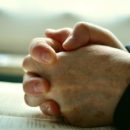Scrupulosity Exposure Help?
So this post is a bit different than my regular posts… Rather than discussing a specific aspect about OCD or anxiety, this post is a request for your assistance in completing an exposure. Here’s the background… I have a patient with scrupulosity (religious OCD) who is working to resist his prayer rituals. Oftentimes, his OCD will lead him to pray many, many times throughout the day in response to various triggers he encounters. One of his primary treatment goals is to be able to reduce unhealthy, OCD-based prayers throughout the day. Scrupulosity treatment can be challenging, but he’s doing a great job. At this stage, we are trying to ratchet things up a notch by having him purposefully expose himself to situations where people request prayers from him directly. Over the last week or so, I’ve been asking people...
Read MoreROCD
Although ROCD is often characterized by intrusive worries about your relationship, relationship OCD treatment often specifically targets the compulsions and avoidance behaviors related to ROCD (rather than the obsessions themselves). This is because ROCD treatment is based on the premise that compulsions and avoidance behaviors are what strengthen and maintain the condition. In the absence of rituals and avoidance, relationship OCD symptoms tend to diminish and weaken over time. This general principle is true for all types of OCD, not just ROCD. As a quick refresher, this multi-part series of posts on rOCD (aka “relationship OCD”) discusses obsessive thoughts that are common in rOCD, ROCD intrusive impulses and images, ROCD compulsions and avoidance behaviors [THIS PART!], and ROCD in non-romantic relationships [FORTHCOMING!]. Let’s get to it. What are common ROCD compulsions? ROCD (Relationship OCD) & Compulsions/Avoidance Behaviors Compulsions are...
Read MoreOCD Treatment: Back to Basics
In previous posts, I have discussed various aspects of the “OCD Cycle,” but it never hurts to have a quick refresher. After all, understanding how OCD works can help you see through its lies and help mobilize you to stand up and challenge it. What is OCD, and how does OCD treatment work? OCD has two mains parts: obsessions and compulsions. We’ll talk about the obsessions first. Obsessions are unwanted thoughts, impulses, or images that intrude into your awareness, and cause significant anxiety or distress. Thoughts include such examples as, “What if I get sick?”, “What if I secretly want to harm my loved ones?“, “What if I just got sexually aroused by that child?“, and “What if I forgot to lock my front door and someone breaks in?“. Impulses are experienced as urges to commit actions that you...
Read MoreRelationship OCD (rOCD) – Unwanted Impulses & Images
This multi-part series of posts will focus primarily on rOCD, also known as “relationship OCD.” Part 1 focused on obsessive thoughts that are common in rOCD. This part discusses other relationship OCD obsessions, including intrusive impulses and images. Part 3 will review common compulsions and avoidance behaviors that are typical in rOCD (relationship OCD). Part 4 will discuss “Relationship-Focused OCD” more broadly in the context of other types of relationships, including friendships, parent-child relationships, and professional relationships. As I mentioned in my previous post on rOCD, many people with “relationship OCD” experience recurrent doubts about whether or not they are with the “right” person. Many also infer that if they have doubts about their current relationship, they might secretly want to cheat (or will cheat). They may fear that they will be unfaithful, even if they’re committed to their...
Read MoreROCD – Relationship OCD
In a previous post on mental checking, I talked briefly about ROCD (Relationship OCD), a form of OCD that involves pervasive doubt and uncertainty about interpersonal relationships. This multi-part series of posts will focus primarily on ROCD in the context of romantic relationships. However, it will also discuss “Relationship-Focused OCD” more broadly in the context of other types of relationships, including friendships, parent-child relationships, and professional relationships. Relationship OCD (ROCD) in Romantic Relationships Many individuals with ROCD have symptoms that are most evident in their romantic relationships. They often experience significant doubt and distress about their chosen partners and may have a history of repeatedly breaking up or ending relationships due to recurrent doubts. ROCD sufferers may worry that they’re with the wrong person, that they don’t feel as emotionally connected to their partner as they should, or that...
Read More







